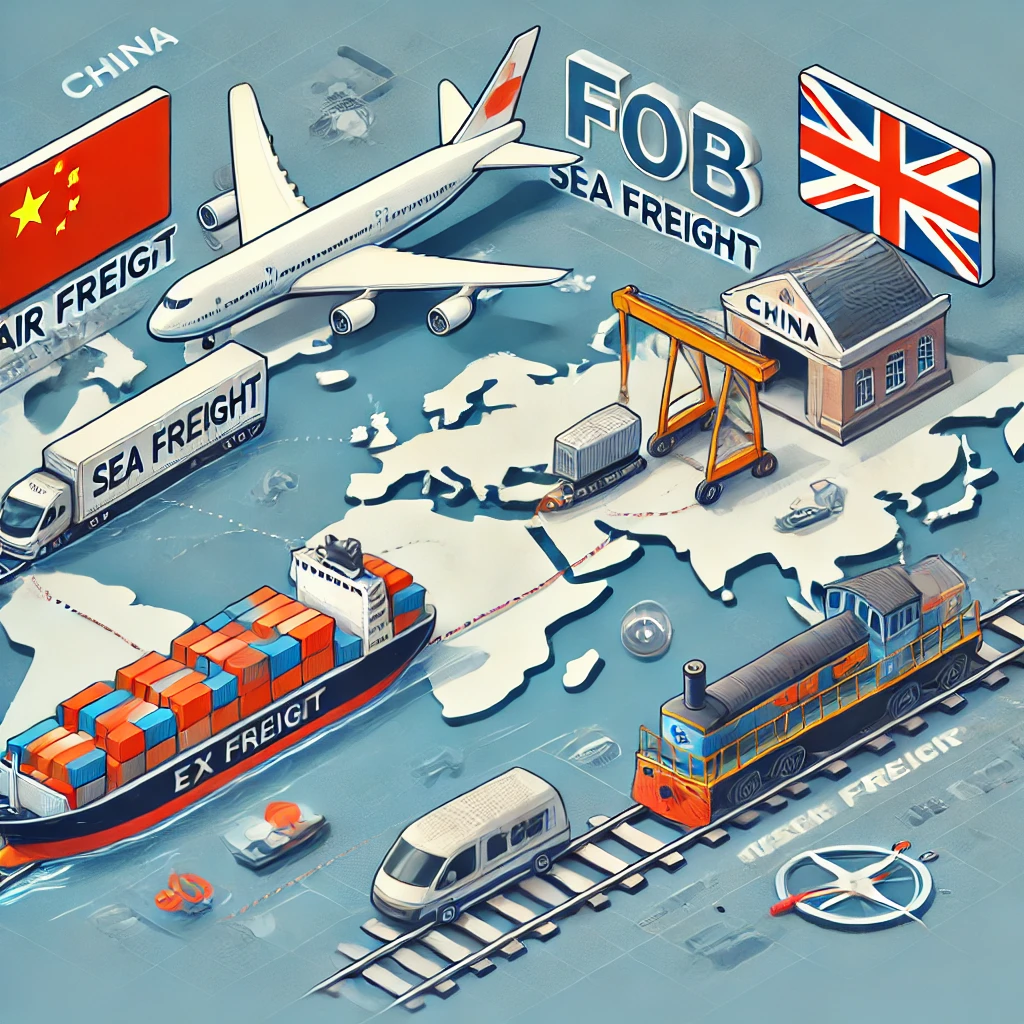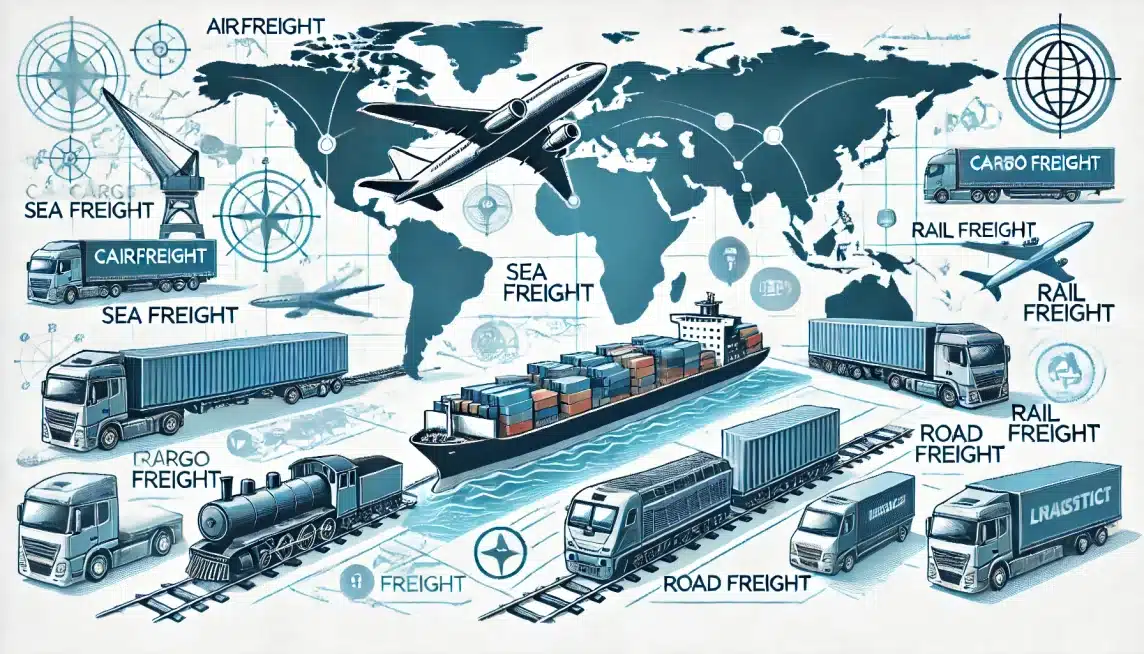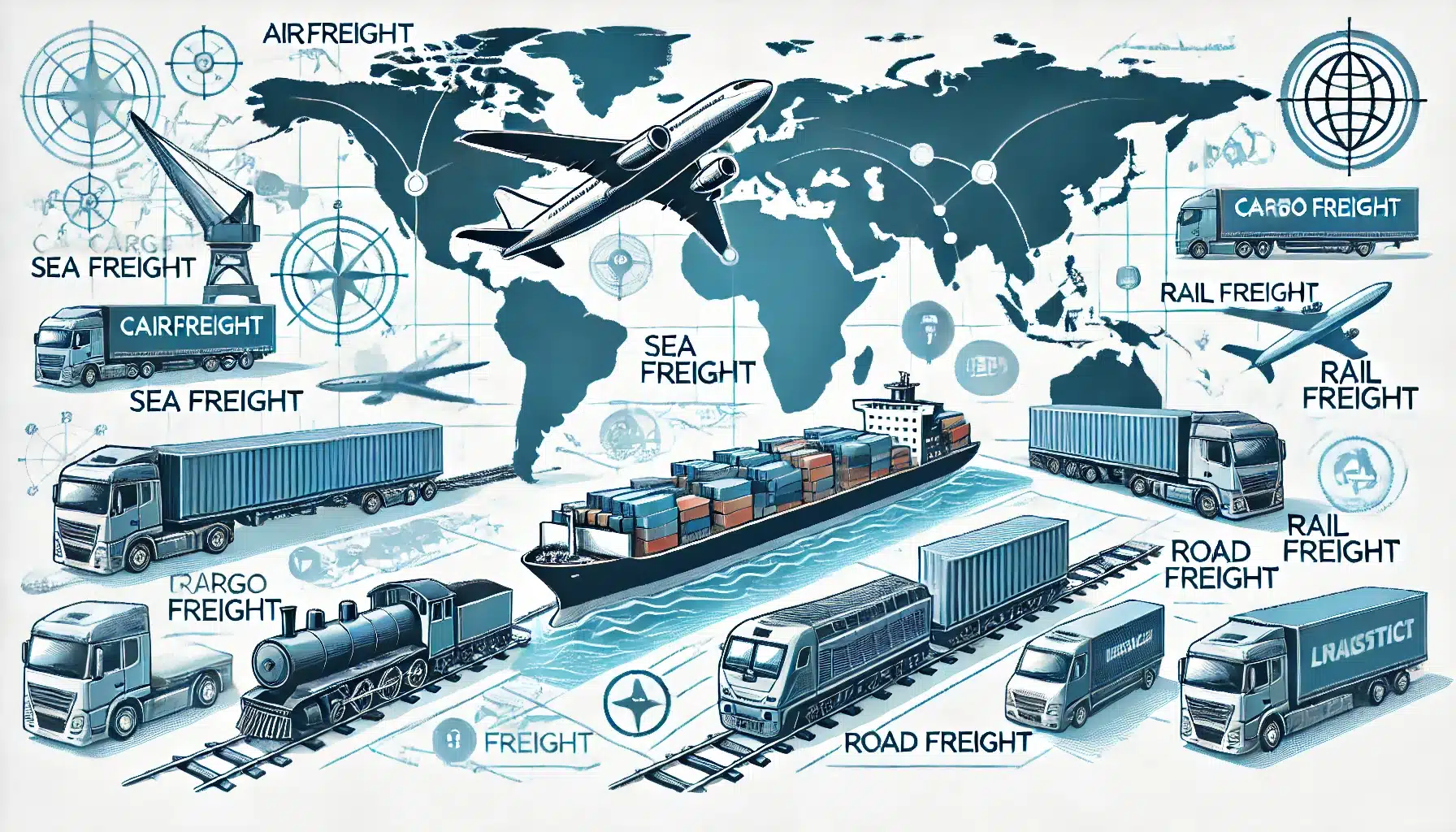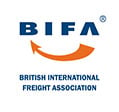What Are the Best Options to Ship Goods from China?
When it comes to importing goods from China to the UK, businesses have a variety of shipping options, each with its own set of advantages, costs, and delivery times. Understanding the best method for your business can significantly impact both your bottom line and delivery efficiency. In this blog, we’ll explore the different ways you can ship goods from China, covering air, sea, and rail transport. We’ll also explain the key shipping terms EXW (Ex Works) and FOB (Free on Board) to help you make informed decisions.
1. To Ship Goods from China by Air Freight
Air freight is the fastest way to ship goods from China to the UK, typically taking 5-7 days for delivery. This option is ideal if you need your goods quickly or are shipping high-value items that require secure and reliable transit. While air freight is more expensive than other shipping methods, the speed and safety of the delivery process often justify the cost.
Air freight is suitable for shipments under 500 kg or goods that are perishable or time-sensitive, like electronics or seasonal items. Additionally, shipping via air can bypass port congestion, which is sometimes an issue with sea freight. Many businesses opt for air freight to ensure their goods arrive quickly without the risk of delays.
2. To Ship Goods from China by Sea Freight
Sea freight is one of the most popular options to ship goods from China, especially for businesses that need to move large volumes of products. While sea freight takes longer—typically 25-40 days depending on the route—it is a much more economical solution compared to air freight. The cost-effectiveness of sea freight makes it a favored choice for businesses importing large consignments such as clothing, furniture, or machinery.
One advantage of sea freight is the flexibility it offers with various shipping container sizes, such as Full Container Load (FCL) and Less than Container Load (LCL). FCL is ideal for large shipments where you need a whole container, while LCL is more economical for smaller shipments, as you only pay for the space your goods occupy in the container.
3. To Ship Goods from China by Rail Freight
Rail freight offers a middle ground between air and sea freight in terms of speed and cost. Rail transport from China to the UK usually takes around 18-24 days. It is an increasingly popular option for companies looking to reduce shipping times without paying the premium costs of air freight. Rail freight is often used for products like electronics, automotive parts, and consumer goods.
Additionally, rail freight is considered an environmentally friendly option, emitting less CO2 than both air and sea shipping. It provides a relatively fast, cost-effective solution for businesses that need their goods sooner than sea freight can provide but don’t require the immediate delivery air freight offers.
4. Understanding EXW (Ex Works) and FOB (Free on Board)
When deciding how to ship goods from China, it’s essential to understand shipping terms like EXW and FOB, which define the responsibilities of the buyer and the seller.
EXW (Ex Works)
Under EXW terms, the seller’s responsibility ends when they make the goods available at their premises. The buyer is responsible for all transportation costs, customs clearance, and the risk of goods from the seller’s location to the final destination. This option gives the buyer more control over the shipping process but comes with additional responsibilities and costs.
EXW is often chosen by experienced buyers who have established relationships with freight forwarders and customs agents, as it provides flexibility in choosing shipping options and routes.
FOB (Free on Board)
FOB terms mean that the seller is responsible for delivering the goods to the port and loading them onto the shipping vessel. After the goods are loaded, the buyer takes over responsibility for shipping, customs, and transportation to the final destination. FOB is a popular option because it offers a balance of responsibility between the buyer and seller, with fewer risks for the buyer compared to EXW.
Many businesses prefer FOB when shipping goods from China because the seller takes care of the initial part of the shipping process, reducing the buyer’s involvement in logistics until the goods are already en route to their destination.
5. Factors to Consider When Choosing a Method to Ship Goods from China
To determine the best shipping method for your business, consider the following factors:
- Urgency: How quickly do you need your goods to arrive? Air freight is best for urgent shipments, while sea freight is better for non-time-sensitive cargo.
- Cost: What is your shipping budget? Air freight is the most expensive option, while sea and rail offer more economical solutions for larger shipments.
- Volume: How much are you shipping? For large, bulky shipments, sea freight offers better value, but for smaller, lighter goods, air freight might be more cost-effective.
- Product Type: Are your goods perishable or fragile? Air freight provides faster delivery for goods with limited shelf life, while sea freight is more suited for durable items.
- Environmental Impact: If sustainability is a priority, rail freight offers a greener alternative with lower CO2 emissions compared to other shipping methods.
6. Customs and Documentation
Regardless of which method you choose, it’s crucial to ensure all customs documentation is in order before you ship goods from China. The most important documents include the commercial invoice, packing list, bill of lading (for sea freight), or airway bill (for air freight), and customs declarations.
Inaccurate or missing documents can lead to delays at customs, which may increase costs and prolong delivery times. To avoid such issues, many businesses hire a freight forwarder who can manage the documentation and customs clearance process.
7. Working with a Freight Forwarder
A freight forwarder can be a valuable partner in helping you ship goods from China. They can assist in choosing the best shipping method, manage logistics, and ensure all documentation is properly prepared. Freight forwarders also have the expertise to navigate customs regulations and streamline the shipping process, making it less stressful for businesses.
8. Conclusion
Choosing the right shipping method to ship goods from China to the UK depends on your business needs, budget, and delivery timeline. Air freight is the fastest but most expensive option, while sea freight offers a cost-effective solution for larger shipments. Rail freight, on the other hand, provides a balance between speed and cost. Understanding the shipping terms EXW and FOB will also help you make informed decisions, ensuring a smooth and efficient shipping process. With the right approach, you can ensure that your goods arrive on time and within budget.
At Milky Way Logistics, we’re here to help you navigate the complexities of international shipping and find the best solutions for your business to ship goods from China. Whether you need air, sea, or rail freight services, we have the expertise to get your goods where they need to be.








